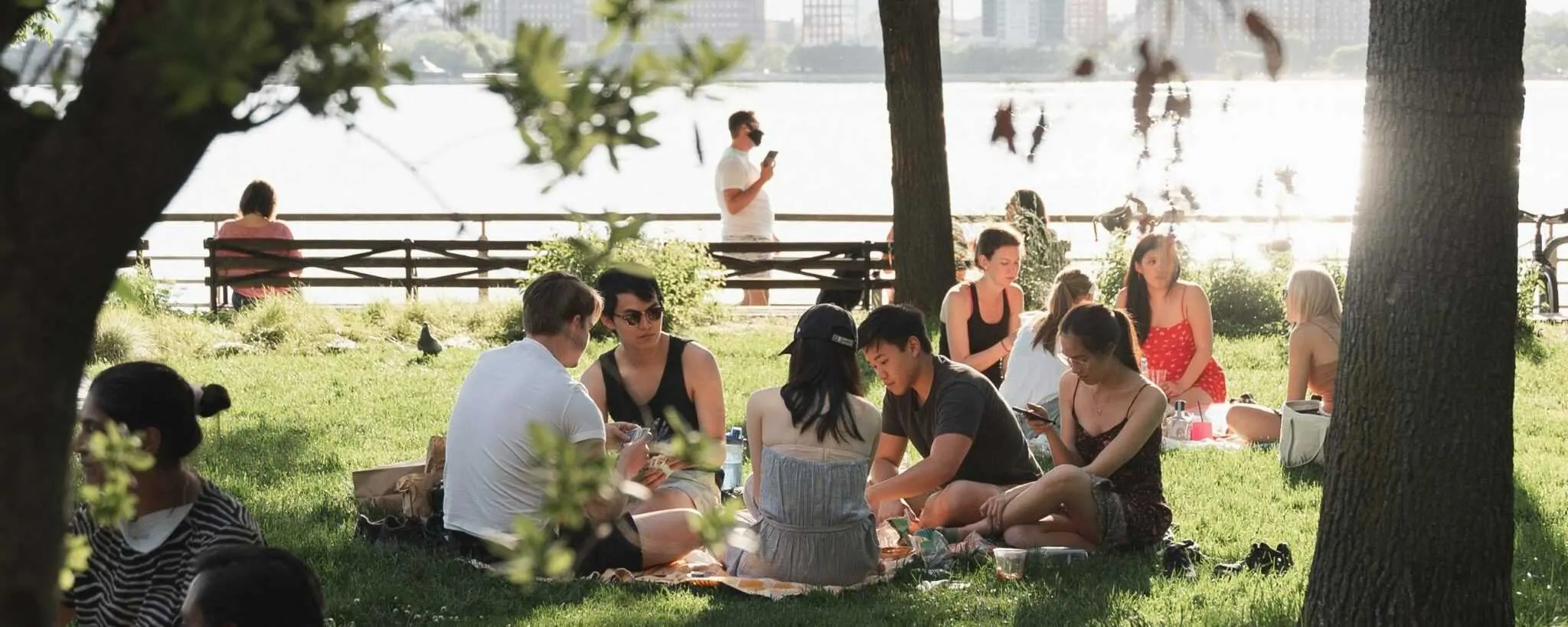
You eat well. You work hard. You sleep on a schedule. You read. You give your time, energy, and intelligence to causes that matter.
At first glance, youve checked every box that matters to a healthy life. However, there’s one box you might be forgetting about (many, many of us do) and that’s relationships.
Relationships, both past and present, matter. They continually determine and affect your self-esteem, how you value yourself, time and worth. According to marriage and family therapist Dr. Stan Tatkin, the respect you have for yourself is a reflection of the respect you have for others, and vice versa.
Further, a deep connection exists between your self esteem and your physical health. As in, the lower your esteem, the less likely you are to engage in self care practices or find resiliency when faced with adversity, and the more likely you are to engage in self harm.
To take it one step further, long-term effects, like heart disease, high blood pressure and obesity, can result from the stress of a poor relationship and low self esteem. With that information, imagine the accumulation of impact that good (or bad) relationships will have on your overall health.
So what does this mean? Well, the same way you need to assess the quality of gym time (Are you balancing time between cardio and weights? Are you incorporating new exercises into your routine? Do you make sure to focus on mobility? Do you give yourself rest days?), you need to assess the quality of your relationships (Do they invigorate you? Do you feel safe? Do you feel trusted, respected and cared for?).
If you answer no to any of those relationship questions, you could be in a toxic relationship.
Below, we’ll go through a bit of relationship advice (both from myself through past experiences, and professional) to help you truly assess the difference between a healthy and unhealthy relationship and how to leave it. This includes all types of relationships: friends, family, and romantic.
Healthy Relationships vs. Toxic Relationships

While a healthy relationship is different to each person, group or family, some consistent characteristics can define what a thriving relationship looks like.
Communication
To begin, healthy relationships have open communication — regardless of whether it is about success or failure, happiness or stress. Regular, honest communication prevents misunderstandings and facilitates trust, respect and intimacy (whatever that means to each specific relationship).
Lack of or fear to communicate with someone you consider a tight relationship is a red flag. You’ll notice that the person frequently cuts you off or criticizes your thoughts and words. Or maybe they rely only on technology to connect with you. Even worse, they ghost you, get defensive quickly or talk over you. While these aren’t grounds to end a relationship, they are definitely reasons to begin assessing the value of it and make adjustments as needed.
Space
That’s right, time apart and friends aside from those who are mutual are critical to a healthy relationship as it shows confidence in one another’s decisions. It also offers a sense of interdependence, rather than co-dependence, since your self esteem is complemented by what you offer each other, rather than dependent on it.
Furthermore, space creates boundaries, and boundaries draw lines as to how you will be treated and why. When those boundaries are overstepped and you feel unable to have any space, the relationship could have an unhealthy amount of codependence. And when you cannot do anything apart from each other or have any other ways to spend time than with each other, you’re likely co-dependent, which is most often unhealthy.
Appreciation and Respect
Being grateful and respectful to others, specifically those with whom you choose to have a relationship, doesn’t require much explanation. Whether it’s for each other’s thoughts, actions, intelligence or intentions, showing gratitude and respect can do nothing but intensify the bond you have with someone. These actions are critical because they show warmth, consideration and love, as well as an attentiveness to the details and time you give each other and the relationship.
So, also without needing much explanation, a lack of mutual kindness for each other, and, one step further, blatant disrespect is detrimental. Signs you’re being disrespected include the other person never having time for you, leaving you out of things, thinking only of themselves, and hiding things or lying.
Lightheartedness
Humor matters. Life comes with setbacks, heartaches and speed bumps. Being able to see the other side of each situation with humor or ease, specifically with a partner who shares the same disposition, is a catalyst to a healthy mind-body connection, which can boost immunity and reduce stress. But even more, it can seal your togetherness, because laughing together means you’re having fun. And the more you laugh, the more fun you’re having.
If you don’t laugh together often, well, it’s not the end of the world. It may not be the end of your partnership either. However, your relationship should offer some outlet of entertainment, lightness and happiness. And if you feel persistently the opposite, it’s likely you’re in a toxic relationship.
Leaving a Toxic Relationship
Don’t go to bed mad. Laugh often. The best apology is changed behavior. Pay more attention to your partner than you do your phone.
Solid relationship advice is easy to come by, right? Why is it so hard to implement then? And, why is it so hard to cut ties from a partnership that is beyond the help of good relationship advice, but rather is harmful and forcing you away from being the person you’ve worked so hard to become?
Well, there are a few reasons for this. Let’s go back to self esteem. For the duration of the relationship, you may have unconsciously based your self worth off of the success of the relationship. The important thing to remember is that just because the relationship didn’t work out, doesn’t mean you aren’t worthy or valuable.
A few questions to consider: Are you hoping that what made your relationship good in the beginning will re-materialize … or do you believe that your partner will stop the habits you’re finding to be irreconcilable? Could it be that you’re holding on because of the time and energy you put into the relationship already … and you don’t want it to go to waste? Regardless of which of these questions resonated with you, the theme is the same: you’re waiting for things to get better or change, and they aren’t.
A quote I once came across that I resonated with (I don’t remember the author, but let me know if you do!): Don’t stay with a mistake just because you spent a long time making it.
And while your partner may eventually turn the corner to become the good person you started the relationship with, it just may not happen with you. And that’s okay. But how do you move forward?
Cut ties. I know, it’s not easy; in fact, it’s really damn hard. But if you’ve finally pinned down any of these reasons as the one that you’re not feeling great – lack of communication, insults, no happiness, disrespect, etc. – it’s time to reset, without the person who is making you feel so low.
If stepping away from the toxic relationship means you need to find new friends to hang out with, do that; have a support group of people who know and show you your value.
Practice self care; find and implement happy, healthy habits. Read, exercise, draw, explore new places; whatever feels right and invigorating to you, do that. Self care also means determining your boundaries, defining who you are and what you want out of a relationship so that you know the rules before creating any future partnerships. Only once you know where the lines are can you determine how far you’ll let someone step outside of them.
Give yourself time alone before diving back into a relationship. This is really a practice of self care; it’s understanding the boundaries you’ve created and respecting them yourself.
And finally, seek help if you need it. Ask a professional for proper guidance to put you back on track to the true, strong you.
Great advice!! I learned it the hard way, your words made me reflect once again on many things which happened in the past but thanks to your post this time with more knowledge and perspective. Thank you, Eric. Also for your great training content here and on YouTube. Keep your good work up, Sir!
Thanks, man! I’m glad to hear the blog posts are beneficial to you and that you are enjoying the workouts! Let’s go!!